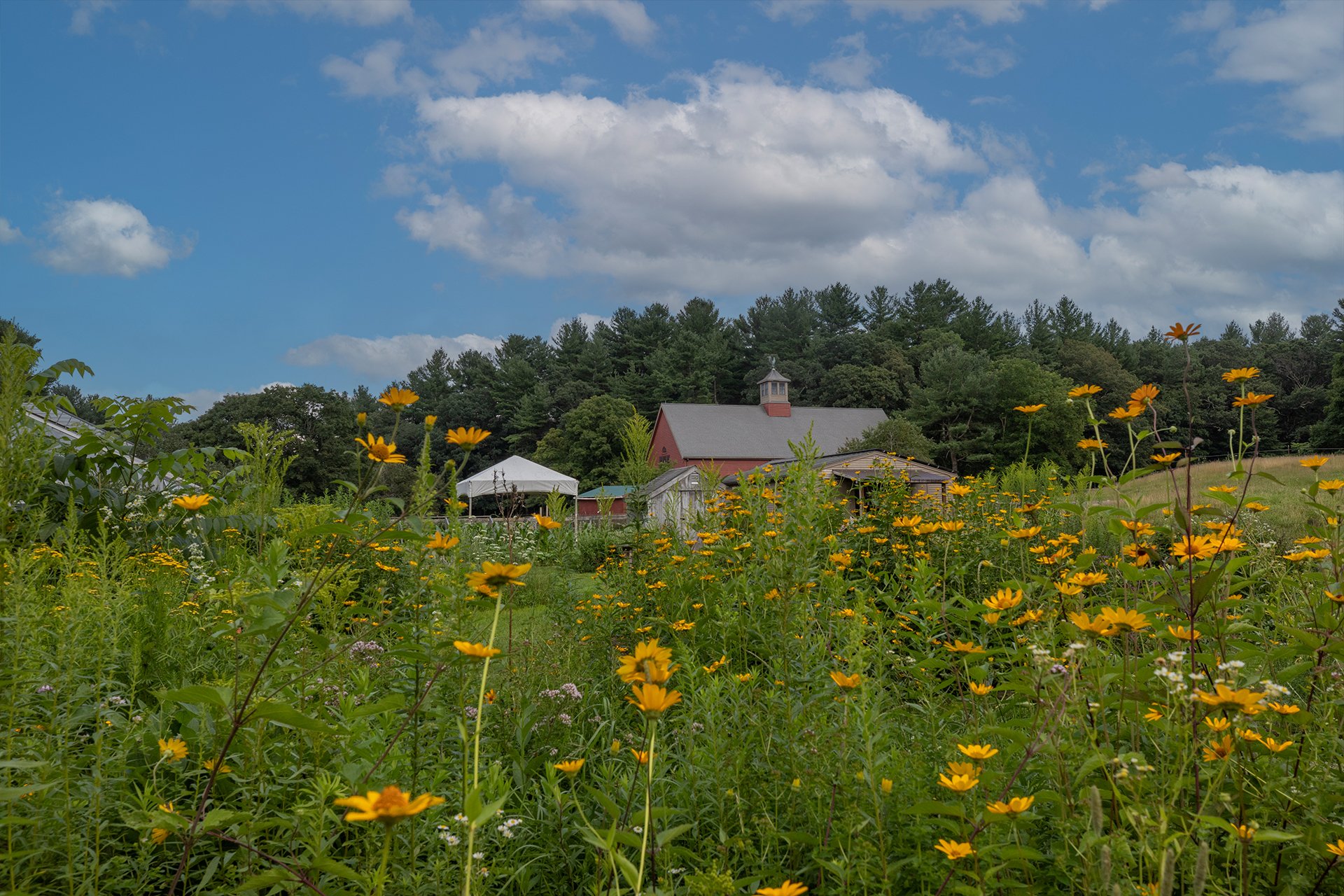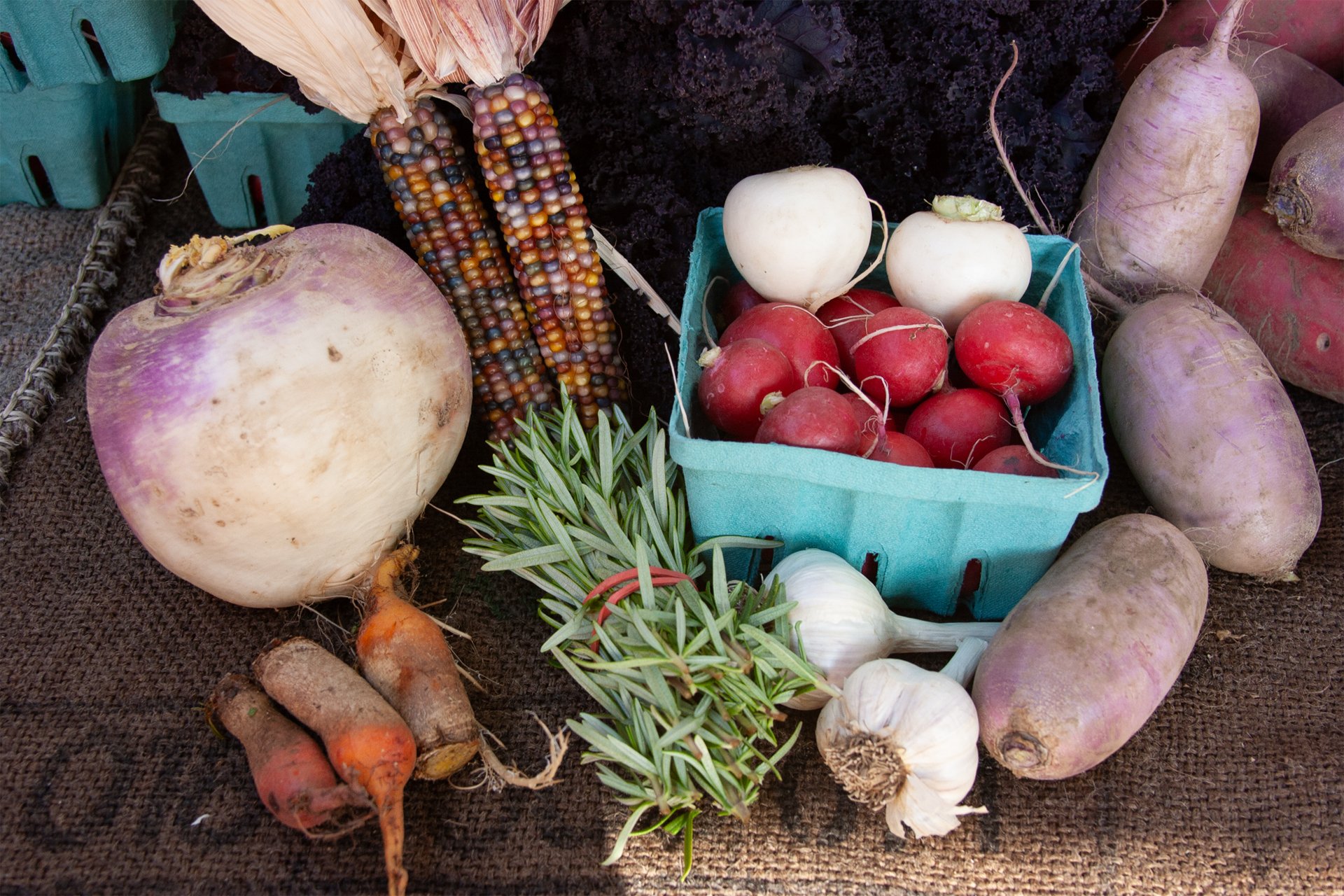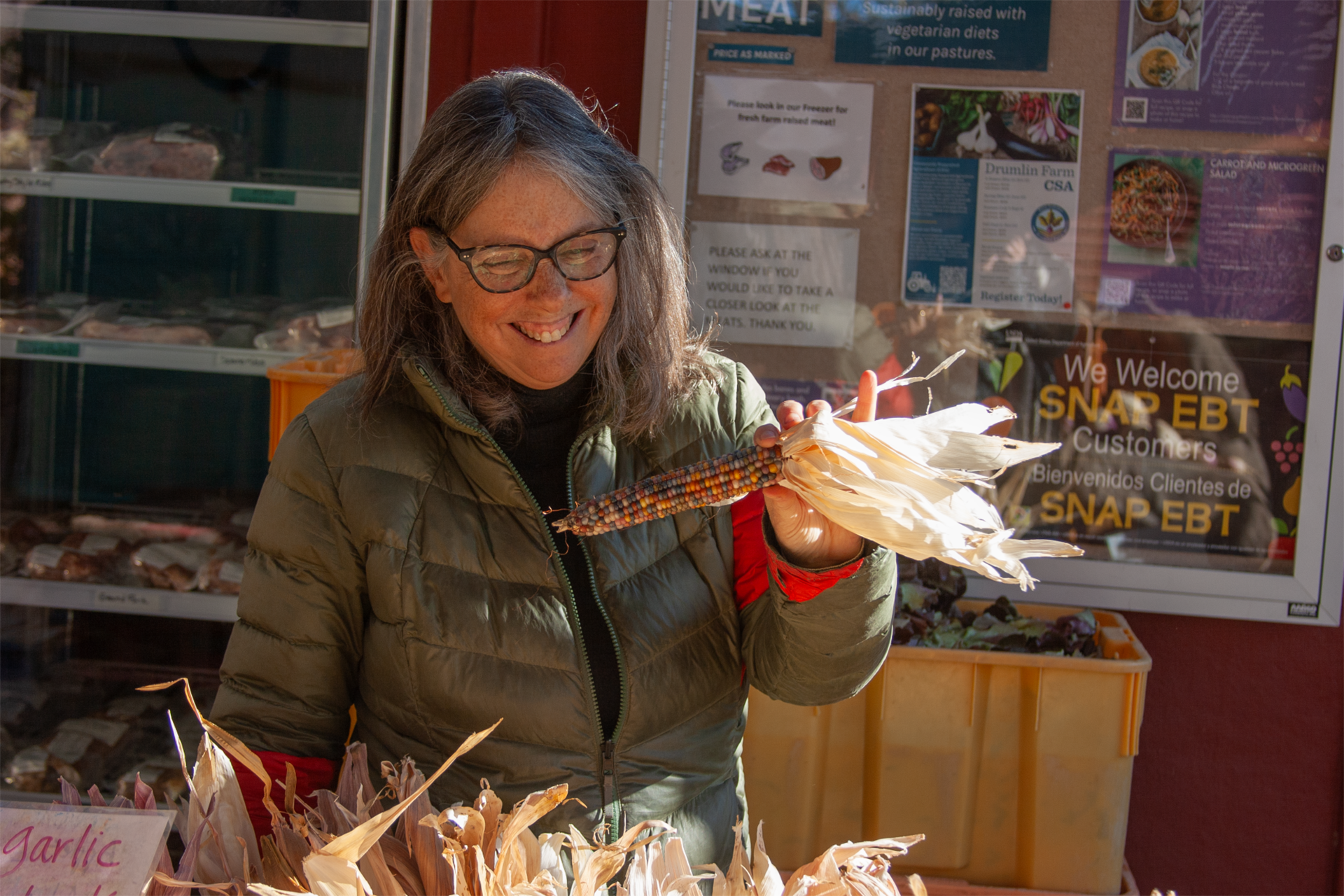Drumlin Farm CSA Navigates a Season of Drought
November 25, 2024
Things are slowing down at the farm as fall starts to give way to winter. On November 20, Drumlin Farm wrapped the 2024 fall season of our Community Supported Agriculture (CSA) farm share program. The fall was full of triumphs and challenges for the crops team as they navigated severe drought and unusually warm temperatures that have dried up much of the Northeast.
How Drought Affects Growing Operations
Because of the dry spell, crops like carrots and greens, whose seeds are sewn straight into the ground, took unusually long to germinate—4 to 5 weeks, compared to only a few days in normal years. Even crops that were started in the greenhouse and transplanted to the field sat dormant until the rain came.
Although some crops struggled, others blossomed. Crop diseases that thrive in moist conditions were scarce, allowing plants like tomatoes to thrive. The mustard greens and lettuce did exceptionally well in the unusually warm temperatures. CSA members also enjoyed fresh ginger this year for the first time, thanks to the almost tropical conditions that can be created in the hoophouse.
“This is my 17th season in the fields, but I am always learning something new, always becoming a better farmer and person. It’s definitely not always glamorous. Sometimes it is so chaotic, frustrating, and filled with failures, but that only makes the successes more powerful,” says Sylvia.
Healthy Soils Ease the Struggle
When droughts happen, most farms rely on supplemental irrigation to fall back on. But not at Drumlin Farm.
“Drumlin Farm’s crops fields operate without an irrigation system to water the fields, so they depend on natural rainfall and the moisture held in our healthy soils,” explains Sylvia Levine, Drumlin Farm’s Crops Manager. The team employs various sustainable methods to keep soils nutrient rich and able to retain the moisture to last through dry periods. This includes low-impact tillage, compost straight from our own livestock, and plenty of leaf mulch.
As climate change causes increasingly harsh and unpredictable weather conditions, farmers will have to get creative to adapt. Farming methods that enrich the soil, rather than deplete it, are a crucial part of that effort.
Winter is Coming
Now, the crew prepares the fields for winter, continuing to farm with a keen focus on supporting healthy soils. Seed garlic has been planted and covered with mulch, where it will rest until spring. Cover crops like winter rye, oats, peas, and clover are planted to keep the bare ground protected from erosion and provide the soil with necessary nutrients during the off-season.
There are still a few cold-hearty crops lingering in the fields even though the CSA has ended. As an organization that is committed to addressing regional food insecurity, many of the remaining veggies will be donated to hunger relief organizations, such as Area Gleaners, Open Table, and St. Vincent de Paul Lincoln & Weston Food Pantry.
To support this important work, please consider donating! Along with our food contributions, your donations help us support the farmers and workers who make it all possible.
Looking Ahead to 2025
Sylvia summed up her thoughts on another great season on the farm by noting, “I love watching the process of tiny seeds turning into enough food to feed so many people in my community. Thank you for supporting me and the other local farmers!”
The next CSA season starts in May, so keep an eye open for registration in the coming months. In the meantime, learn more about what makes Drumlin Farm’s farming operations so unique, and how sustainable agriculture feeds our community.
Stay Connected
Get the latest on everything happening across the Metro West, from community supported agriculture to programs and beyond.





